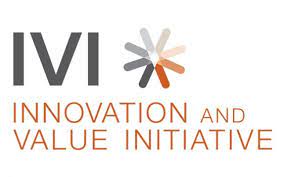IVI announces publication of the top three winners of the Valuing Innovation project’s Call for Papers

Alexandria, VA – July 9, 2024 – The Innovation and Value Initiative (IVI), a nonprofit research organization dedicated to advancing the science, practice and use of health technology assessment (HTA) in healthcare, is pleased to announce the publication of a special supplement to PharmacoEconomics containing the manuscripts of the award winners of the Valuing Innovation Project (VIP) Call for Papers.
This special supplement contains three articles proposing novel and practical solutions to help us better define, measure and reward innovation in HTA frameworks. These papers were selected from a call for proposals under the Valuing Innovation Project (VIP), a multi-phase initiative launched by IVI and multi-stakeholder partners.
Innovation and Values Initiative
“This research is a testament to the incredible progress being made in health technology assessment,” said Dr. Richard Chapman, IVI’s Chief Science Officer. “These papers provide novel methods and frameworks that will help us more accurately measure and reward the value of medical innovations, encouraging further innovation that will ultimately benefit patients and healthcare systems worldwide.”
The three winning manuscripts, available online ahead of publication in the Journal of PharmacoEconomics, are:
- Incorporating Real Option Value in Valuing Innovation: A Way Forward, by Meng Li, ScM, PhD, and Louis P. Garrison, PhD, presents a “minimal modeling” approach to assess real option value (ROV) in HTA without a full cost-effectiveness model. The method uses publicly available data to estimate ROV and highlights its impact on costs, value estimates, and cost-effectiveness ratios. An analysis of ipilimumab for metastatic melanoma demonstrates the significant impact of ROV on value assessment.
- The Value of Flexible Vaccine Manufacturing Capabilities: Value Drivers, Estimation Methods, and Value Recognition Approaches in Health Technology Assessment by Dr. Fred McElwee and Dr. Anthony T. Newall assesses the importance of flexible vaccine manufacturing in response to health threats. The authors identify key value drivers, develop estimation methods, and discuss integrating this value into health technology assessment. They emphasize the need for accurate tools to measure this flexibility and propose several methods to bridge this gap.
- Estimating and Rewarding the Benefits of Health Interventions Beyond the Health Sector: A Conceptual Framework by Askal Ayalew Ali, Amit Kulkarni, Sandipan Bhattacharjee, and Vakaramoko Diaby proposes a framework to capture the broader economic, social, and environmental impacts of health interventions. A case study of a digital health therapy for opioid use disorder illustrates the application of the framework and the importance of considering equity impacts and stakeholder engagement.
“It will be critical to test and refine these innovative approaches in future health screenings,” added Chapman. “We look forward to seeing these methods adopted and used in practice.”
Learn more.



